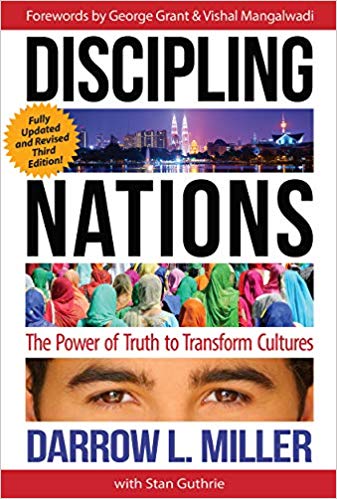At a Glance
When most people hear the word authority or think of the patriarchy, toxic masculinity, crony capitalism, authoritarianism, a power-hungry boss, or abusive parents, coaches, or teachers… The constant in all these cases is that the one in authority is not serving or seeking the best of those under them. They are abusing their role to amass power, which is antithetical to God’s intention for this vital role in His Kingdom. God calls us to authority, but not the authority we are all too familiar with in this fallen world. He says to those in authority, “Whoever wants to become great among you must be your servant, and whoever wants to be first must be your slave” (Matthew 20:26-27). Let’s look at God’s structure for authority–the only authority that leads to freedom, flourishing, and functional human relationships for those it serves.
What You'll Hear
- Introduction (1:07)
- Why, throughout history, have we always had a bad taste for anyone in authority? (9:15)
- Do humans actually need to live under authority? (16:34)
- God has ultimate authority (24:55)
- The Marxist view of authority (27:33)
- The beautiful picture of authority as seen in the Bible (39:05)
- Authority without superiority (54:02)
- The primary God-given areas of authority (1:02:26)
- Authority is only legitimate as long as it is aligned with God’s law (1:13:14)
Using the link above, you can read the transcript, listen along, and adjust the speed of the podcast while you listen.
And whenever Christ's example of authority is put into practice in a home, a church, a city, a nation--it's quite revolutionary.
Scott Allen (44:29)

Go Deeper
The Kingdomizer Training Course
A Kingdomizer advances the truth, goodness, and beauty of God’s Kingdom in the world in which they live. The Kingdomizer Training Program is a series of online courses designed to equip you to live out Christ’s truth and redemptive love in transforming ways.
The Kingdomizer Training Program teaches you a true, Biblical Worldview and how to use that worldview to impact others.
Root To Fruit
Root-to-Fruit’s mission is based on a conviction that God’s truth has the power to transform individuals, organizations, communities and even nations. Organizations are transformed when its leaders and staff confront cultural lies, and instead embody and proclaim God’s biblical truths. Helping organizations to do this is the beating heart of our mission. Understanding a biblical worldview creates space for people to assess their own worldview in contrast to God’s truth. A biblical worldview begins with two foundational assumptions:
- Jesus is King over all, and
- His Word is truth.
When an organization disciples a culture built on a foundation of these twin truths, its leaders and staff begin to work in harmony, with a common language to flourish.
A biblically empowered worldview reconciles broken relationships with God, self, others and the environment. Out of a renewed sense of identity in God’s image, the leaders and staff improve their spiritual and physical livelihoods through individual responsibility, trust, respect and hard work. Leaders and staff together begin to define the desired transformation, own it and are accountable for the outcome.
Discipling Nations: The Power of Truth to Transform Cultures
Have Christians underestimated the power of God’s truth to transform entire societies? In Discipling Nations, Darrow Miller builds a powerful and convincing thesis that God’s truth not only breaks the spiritual bonds of sin and death but can free whole societies from deception and poverty. Completely revised and updated for the third edition, Discipling Nations will challenge, reenergize, and equip Christians everywhere who labor to see His kingdom come, His will be done.Quotes
- 12:05 Authority is “the right to issue a command or a rule or a law and to punish violations.” Scott
- 26:49 “It’s just ironic… a postmodernist says, I want authority over my life.’ And God in Genesis 1 said, ‘I will give you authority over your life. But here’s my expectation.’ Actually the idea of wanting to govern is a godly desire and yet today it’s just so distorted, fallen, and broken.“ Dwight
- 32:31 “Today, we divorce authority from responsibility. So be careful what you ask for–okay, take authority, but then you are responsible for the outcome, good or bad of what happens. We want to have authority without responsibility. So the misuse of authority leads to bad outcomes, but we don’t want to take the responsibility for them. So there’s a high calling to good authority, including the ultimate responsibility for what the outcomes are.” John
- 44:29 “And whenever Christ’s example of authority is put into practice in a home, a church, a city, a nation, it’s quite revolutionary.” Scott
- 57:51 “I think sometimes we look at authority as positional, rather than a role.” John
- 58:04 “I don’t think somebody can be a good person in authority unless they also understand and have experience and are probably good at being under authority.” John





